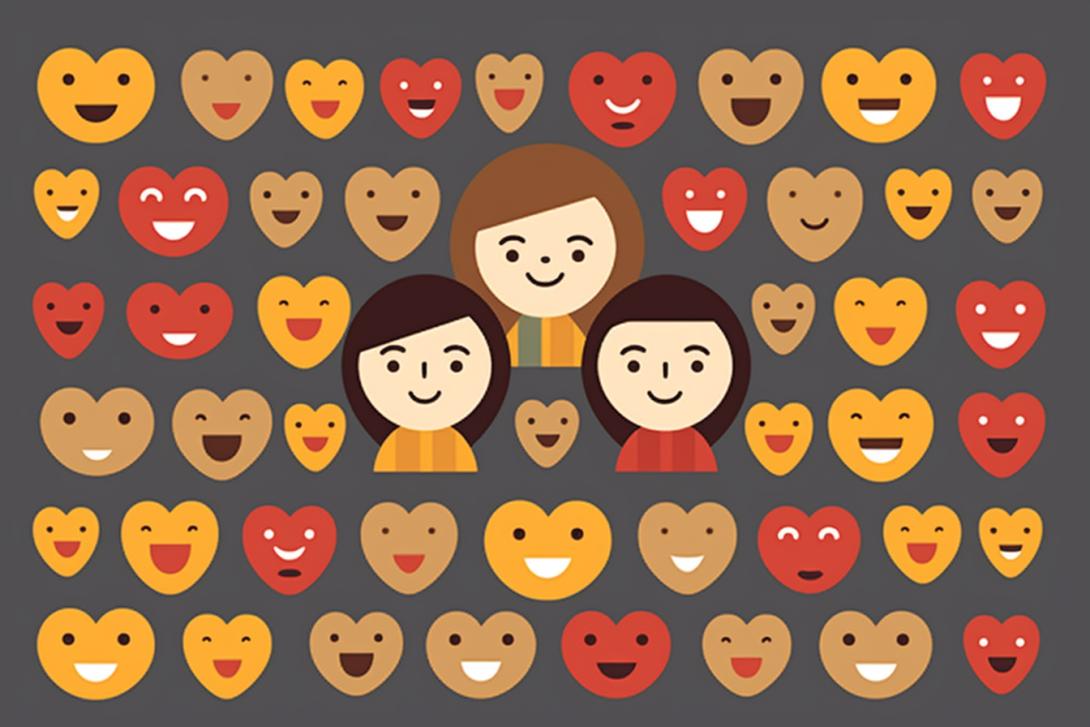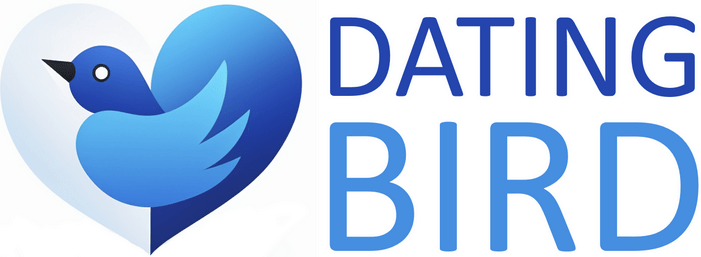Emojis in online dating are digital symbols used to express emotions, ideas, or objects in a concise way. They add a visual element to text-based communication, enhancing the clarity of intent and personalisation in messages, crucial in the virtual dating sphere of the UK.


A Detailed Explanation of Emojis in Online-Dating:
Emojis in online dating serve as a universal language that transcends text, enabling individuals to convey a wealth of feelings and nuances that might otherwise be lost in digital communication. They are frequently used in dating profiles, direct messaging, and even algorithm-based matching in some dating platforms. The purpose of using emojis in online dating is multifold. They can express emotions, clarify the tone of a message, and even serve as ice-breakers in initial conversations.
"Emojis are like the body language of online dating, providing visual cues that text alone might not convey."
The use of emojis in online dating can also signal a user's willingness to engage, their sense of humour, and their level of interest. In a virtual space where physical cues are absent, emojis become essential tools to convey subtleties of sentiment and intention, enhancing the overall dating experience.
What are Good Examples of Emojis in Online-Dating?
Emojis in online dating are often used to express emotions, set a tone, or clarify intentions. For instance, the winking face emoji 😉 is commonly used to signal flirtation, while the heart emoji ❤️ often signifies affection or love. The laughing face 😂 may be used to indicate amusement or to lighten the tone of a conversation. More specific emojis, such as the rose 🌹, can symbolise romance, while the ring 💍 can indicate a desire for a long-term commitment.
"Emojis can serve as a universal language in online dating, transcending linguistic barriers and clarifying intentions."
However, the interpretation of emojis can also vary greatly depending on individual perception and cultural context. For example, the peach 🍑 and eggplant 🍆 emojis, while innocuous in some cultures, are often used to signify sexual innuendo in online dating contexts. The use of emojis in online dating is a reflection of their broader role in digital communication, where they serve to enrich textual exchanges with nonverbal cues.
What Really Matters in Using Emojis in Online-Dating? Or Not?
When it comes to the successful use of emojis in the realm of online dating, there are several key considerations to bear in mind. Firstly, the choice of emojis is crucial. Emojis should be chosen thoughtfully to accurately convey the intended sentiment and to align with the context of the conversation. Secondly, the frequency of emoji use can be an important factor. Overuse can potentially lead to miscommunication, while underuse might make the conversation seem less engaging. Lastly, the timing of emoji use can also play a significant role in the effectiveness of the communication.
"The successful use of emojis in online dating hinges on thoughtful selection, appropriate frequency, and timely usage."
Additionally, it's worth noting that the interpretation of emojis can greatly vary based on individual perception and cultural contexts. This interpretative flexibility can sometimes lead to misunderstandings, particularly in the context of online dating where non-verbal cues are absent. In essence, while emojis can enhance communication in online dating, they also present their own unique set of challenges.
Why are Emojis so Important in Online-Dating? Or Not?
In the digital landscape of online dating, emojis often operate as the modern equivalent of body language or tone of voice, providing a visual and emotional layer to text-based interactions. Their primary role is to enhance communication by conveying emotional nuances that might otherwise be lost in written conversation. Emojis can express joy, surprise, sarcasm, flirtation, and a myriad of other sentiments that are crucial in establishing an emotional connection, a key aspect in the initial stages of online dating.
"Emojis, in essence, serve as the emotional pulse of online dating interactions, adding colour and vivacity to the digital dialogue."
However, the importance of emojis in online dating is not universal. For some, they are an indispensable tool in conveying emotion and intent, while others may find them unnecessary or even off-putting. This discrepancy can be attributed to personal preferences, age demographics, and cultural differences, among other factors. Therefore, while emojis can play a pivotal role in online dating, their significance is ultimately subjective and largely dependent on the individuals involved in the interaction.
What are the Challenges of Using Emojis in Online-Dating?
While emojis can be a powerful tool in online dating, they also present certain challenges. Misinterpretation is a common issue, as the meaning of an emoji can differ greatly depending on the context, personal interpretation, and cultural background. For instance, a winking face emoji might be seen as flirty by some, while others may perceive it as inappropriate or unprofessional. This potential for misunderstanding can lead to miscommunication and even conflict. Furthermore, overuse of emojis can come off as immature or unprofessional, potentially deterring potential partners.
"The key challenge with emojis in online dating is navigating the fine line between enhancing communication and causing confusion."
Another challenge is that not all emojis are universally understood or used, leading to potential confusion. For instance, an emoji that is popular and well-understood among a younger demographic might be unknown to an older individual. This can create a barrier in communication and potentially lead to misunderstandings. Lastly, the use of emojis in online dating can be seen as impersonal or lacking effort, which can be off-putting to some individuals who prefer more traditional forms of communication.
- Misinterpretation of emojis
- Overuse can seem immature or unprofessional
- Not all emojis are universally understood
- Can be seen as impersonal or lacking effort
What is the Difference Between Emojis in Online-Dating and Emojis in Social Media?
Emojis in online dating differ from those in social media in several aspects. Firstly, the context: in online dating, emojis typically serve as a tool to express emotions and intentions more clearly in a conversation that is inherently lacking non-verbal cues. They are often used to convey flirtation, interest, or even disinterest. In contrast, on social media platforms, emojis are used more broadly to express reactions, add emphasis, or create a sense of community. Secondly, the frequency and type of emojis used in online dating can be more personalised and specific, reflecting the intimate nature of the communication. In social media, emojis are often used more generically. Lastly, the interpretation of emojis can vary significantly between these two contexts. An emoji that is considered flirty or intimate in online dating could be perceived as casual or friendly on social media. Understanding these differences is crucial for effective communication in the digital age, especially for Brits navigating the world of online dating.
FAQ
Question: What are Emojis in online-dating?
Question: What is the purpose of using emojis in online dating?
Question: Can emojis influence the success of online dating?
Question: What are some of the most commonly used emojis in online dating?
Question: What are the challenges of using emojis in online dating?
Question: What is the difference between emojis in online dating and emojis in social media?
Question: What factors should one consider when using emojis in online dating?
Question: Can the use of emojis in online dating lead to misinterpretations?
Related articles
Articles with related questions
Written by:
 Nathan
Nathan stands for quality content. He checks all articles critically and conscientiously.
Nathan is our team skeptic. He puts all tests and reports through their paces.In his opinion, if an article does not contain at least 500 words, it is not well researched.
Nathan
Nathan stands for quality content. He checks all articles critically and conscientiously.
Nathan is our team skeptic. He puts all tests and reports through their paces.In his opinion, if an article does not contain at least 500 words, it is not well researched.
